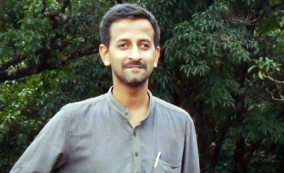A. Giddens, The Consequences of Modernity, Polity, 1989
J.P.S. Uberoi, The European Modernity: Science, Truth and Method, Oxford University Press, 2002
J. Alam, India: Living with Modernity, Oxford University Press, 1999
S. Hall, D. Held and A. McGrew (Eds.), Modernity and its Futures, Polity/Open University Press, 1992
S. Hegde, ‘Modernity’s Edges: A Review Discussion’, Social Scientist, 28 (9-10): 33-86, 1999
K. Kumar, Prophecy and Progress: The Sociology of Industrial and Post-industrial Society, Penguin, 1986
J. Habermas, The Philosophical Discourse of Modernity, Polity, 1987
M. Foucault, Power/Knowledge: Selected Interviews and Other Writings, 1972-1977, Pantheon, 1980
J.F. Lyotard, The Postmodern Condition: A Report on Knowledge, University of Minnesota Press, 1984
E. Said, Orientalism: Western Concepts of the Orient, Penguin, 1985
Z. Bauman, Intimations of Postmodernity. Routledge, 1992
P. Abbott and C. Wallace, An Introduction to Sociology: Feminist Perspectives, Routledge, 1990
F. Jameson, Postmodernism, or the Cultural Logic of Late Capitalism, Verso, 1991

DOWNLOAD APP
FOLLOW US